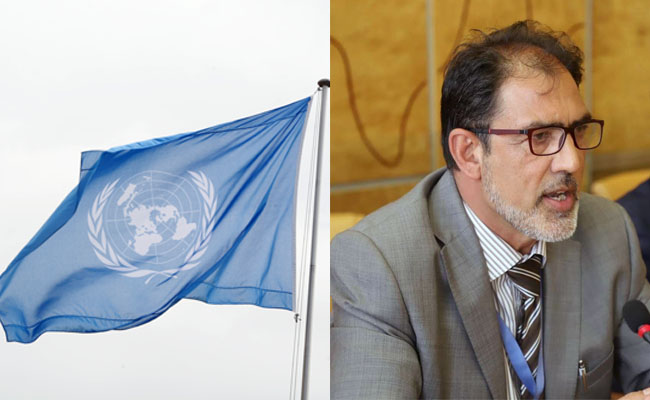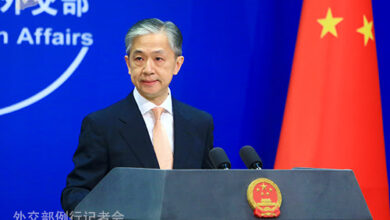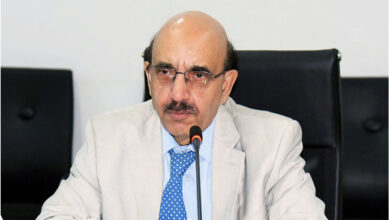Wani hails UN officials for highlighting dire human rights situation in India

Islamabad: Veteran human rights activist and Chairman Kashmir Institute of International Relations (KIIR) Altaf Hussain Wani has appreciated four United Nations (UN) Special Rapporteurs for voicing their serious concerns over the violations of human rights being carried out under the shadow of the draconian laws prevalent in the Indian states.
Pertinently, the concern was voiced in a joint communiqué addressed to the government of India by the Special Rapporteur on the promotion and protection of human rights and fundamental freedoms while countering terrorism; the Working Group on Arbitrary Detention; the Special Rapporteur on the promotion and protection of the right to freedom of opinion and expression; the Special Rapporteur on the rights to freedom of peaceful assembly and of association; the Special Rapporteur on the situation of Human Rights Defenders; Special rapporteur on independence of judges and lawyers; Special Rapporteur on minority issues; Special Rapporteur on right to privacy and Special Rapporteur on freedom or religion or belief.
Terming it a positive development Wani pointed out that the communiqué has laid bare the ugly face of India before the world. Highlighting the important aspects of the letter Wani said, “The letter had raised concerns in relation to designation of individuals as “terrorists”, in the context of the ongoing discrimination directed at religious and other minorities, human rights defenders and political dissidents, against whom the law has been used”.
In addition to calling the UAPA definition as overboard and ambiguous Wani said that the top officials of the UN had expressed grave concerns about the definition of a “terrorist organisation” and “unlawful association.
The KIIR chief said that grave concerns have been voiced regarding the misuse of counter-terrorism laws, which the UN officials said were being used by authorities to target human rights defenders or hinder their work and endanger their safety in a manner contrary to international law.
Wani also praised human rights activists for working in extremely harsh and unfavorable conditions in India, and for risking their own lives to promote and protect the human rights.
The KIIR chief who is a close watcher of developments sweeping across the South Asian region with special reference to Kashmir said that India that claims to be a largest democracy was yet to introduce adequate laws and properly implement existing policies to protect marginalized communities, particularly Muslims, Dalits, religious minorities, women, and children. Referring to a series of black laws introduced by the governments of India from time to time he said, “India has a shocking track record of using black laws and the so-called counterterrorism laws to chill the voice of dissent in India particularly in the UN recognized disputed territory of Jammu and Kashmir”.
About the present precarious situation in the Indian held territory of Jammu and Kashmir Mr. Wani said that there was an urgent need that Indian should be held accountable for rights violations, including all forms of sexual assault against women, enforced disappearances, extrajudicial killings, the use of torture, and increasing attacks against human rights defenders in Kashmir.
The lack of accountability for human rights abuses, he said was one of the main cause and consequence of rights violations in the Indian occupied Kashmir.





